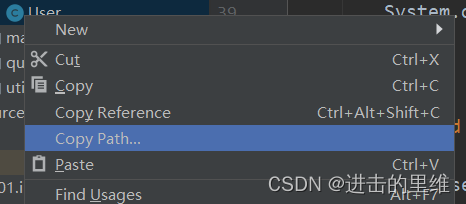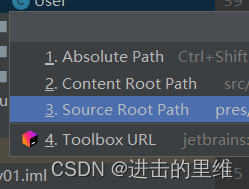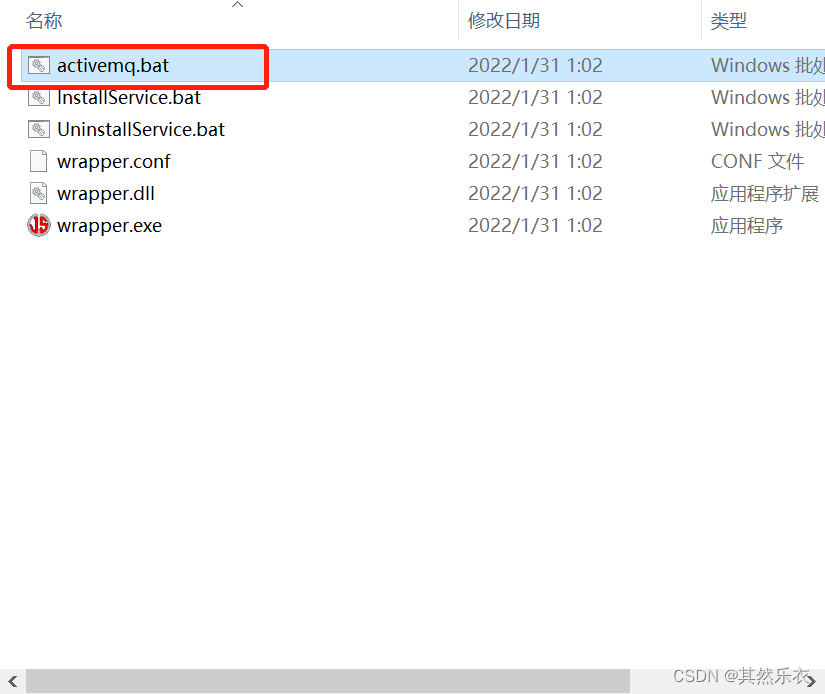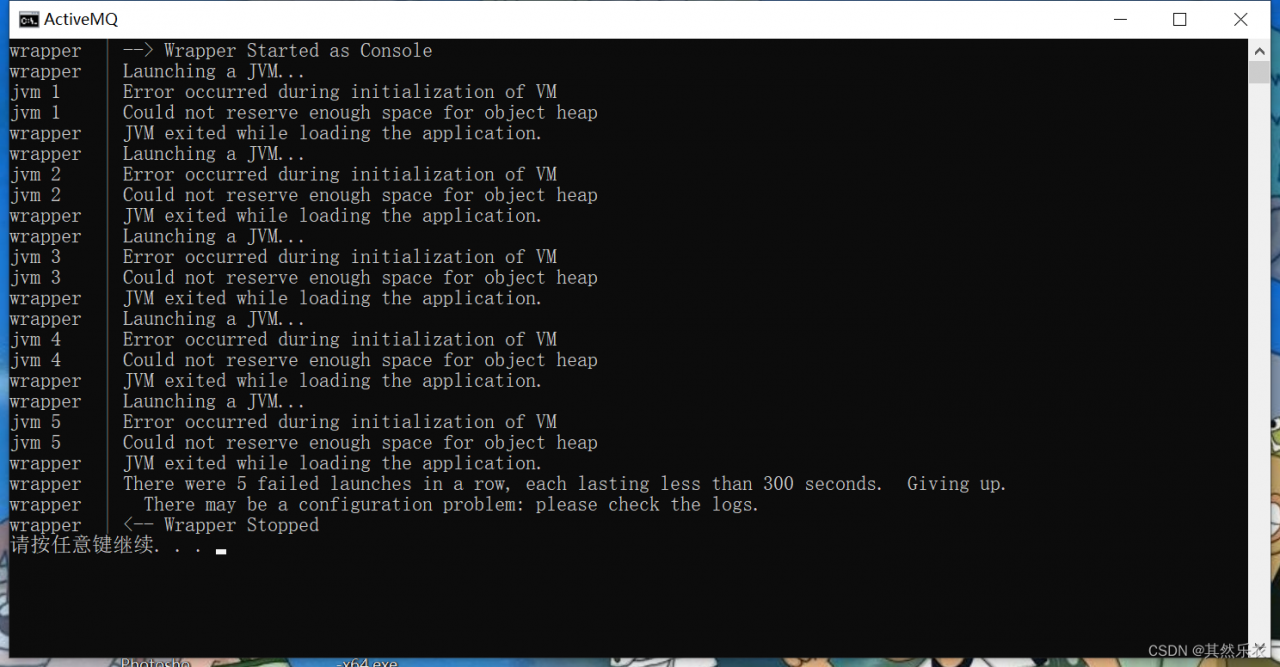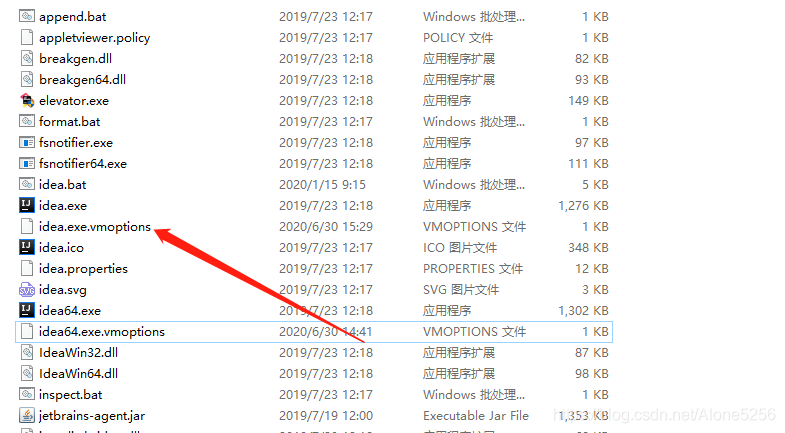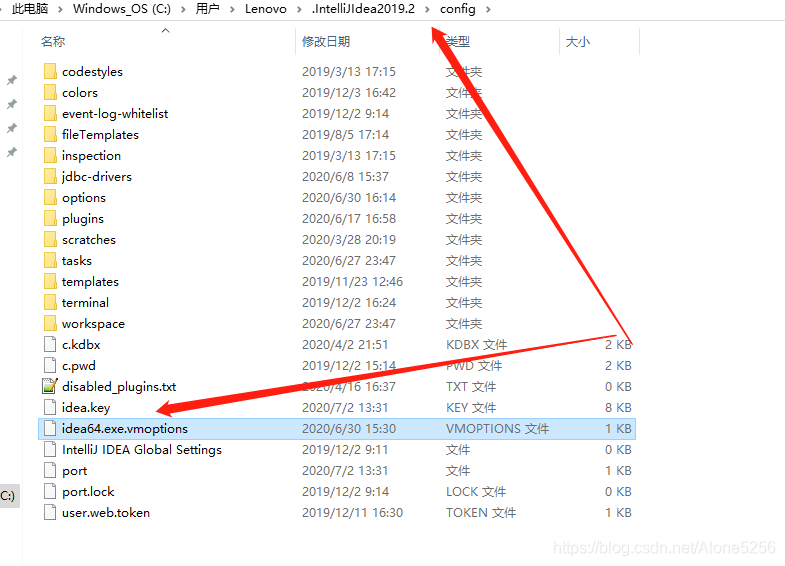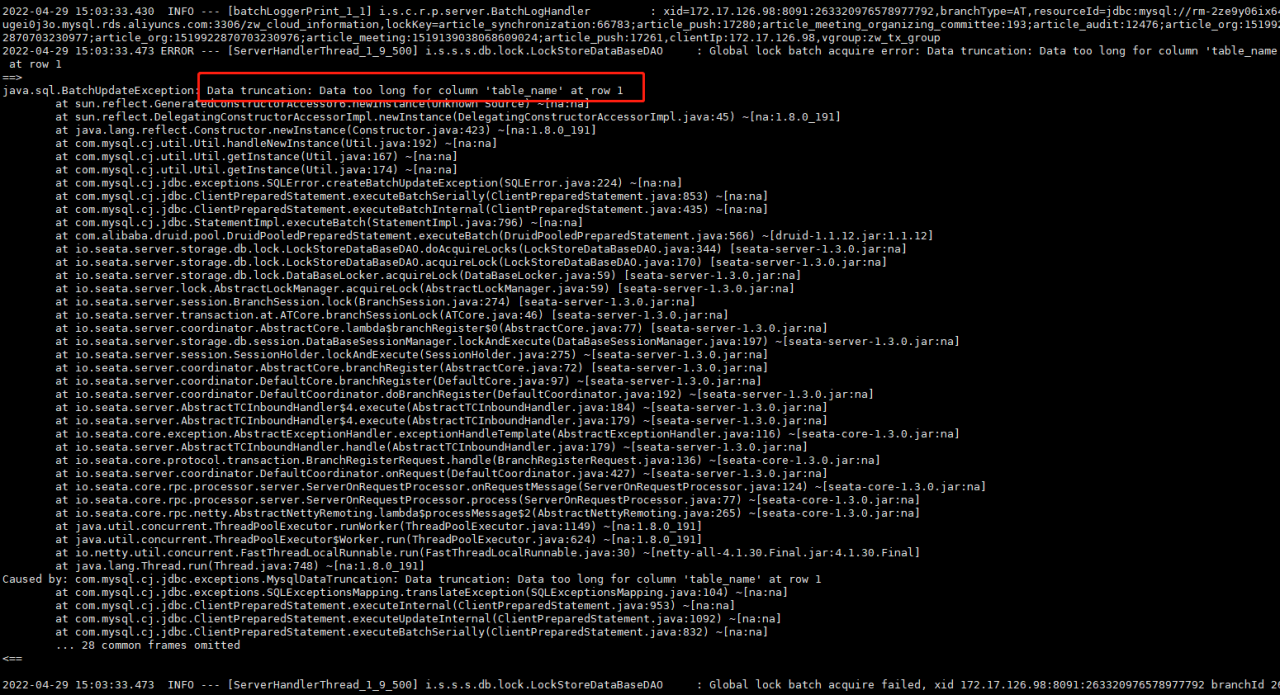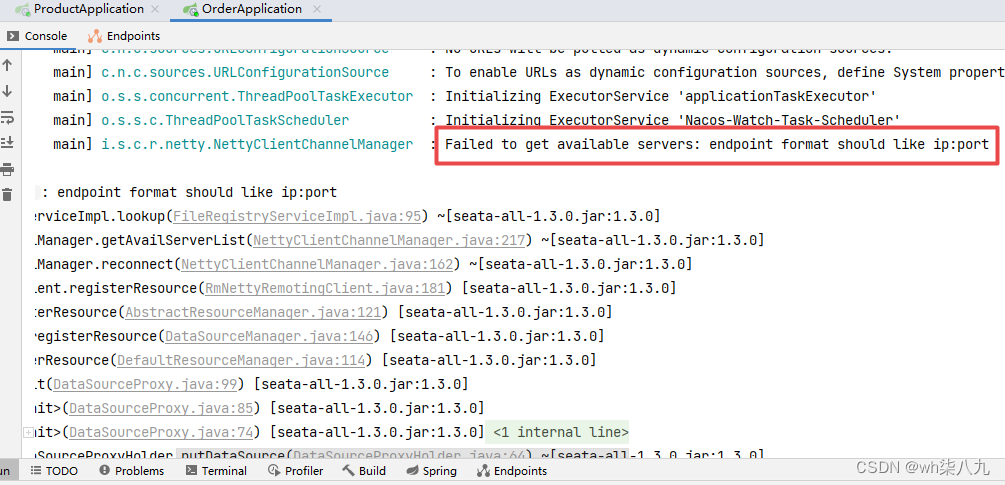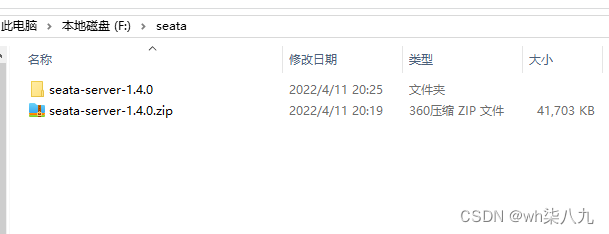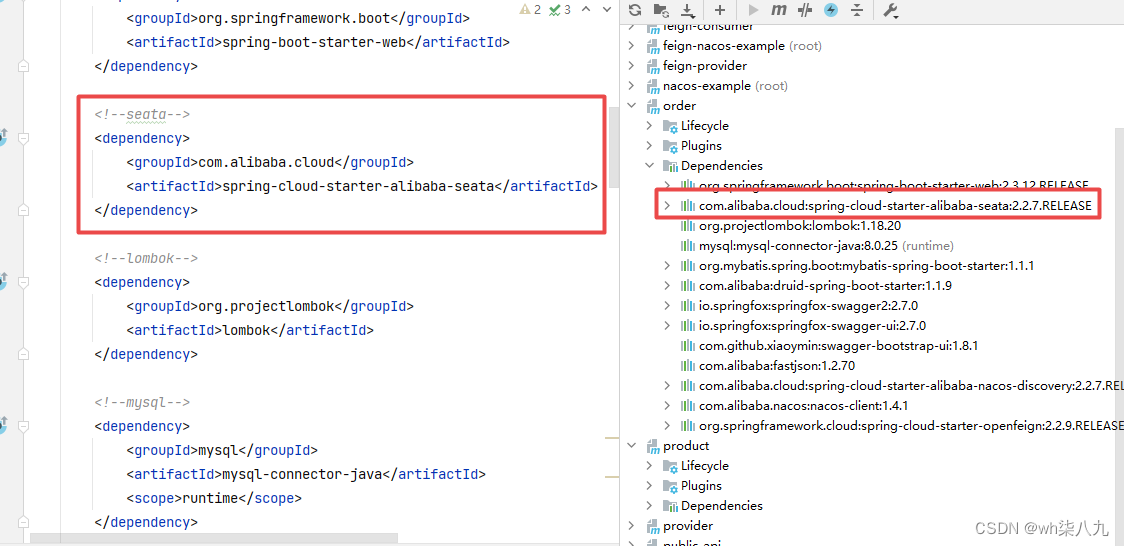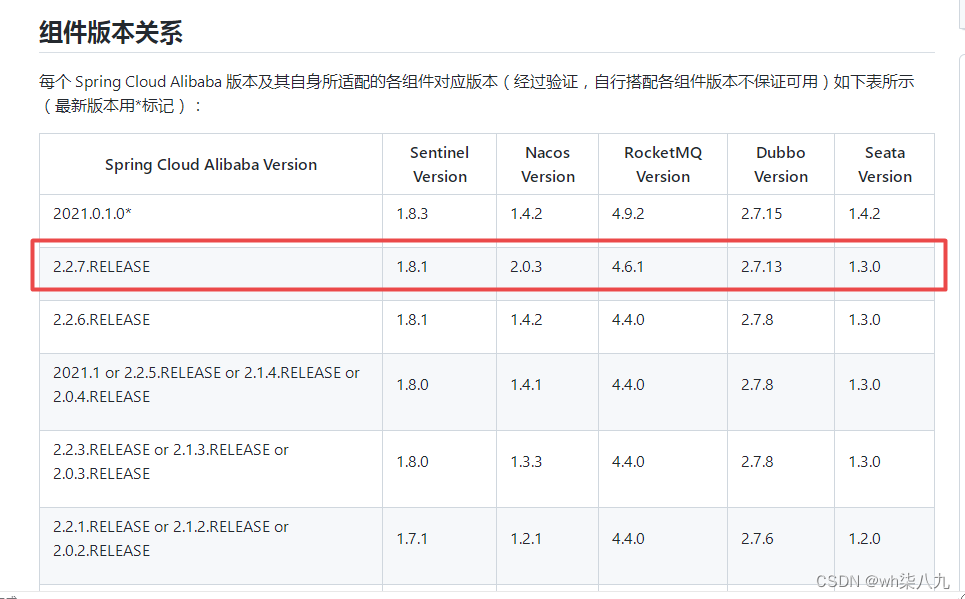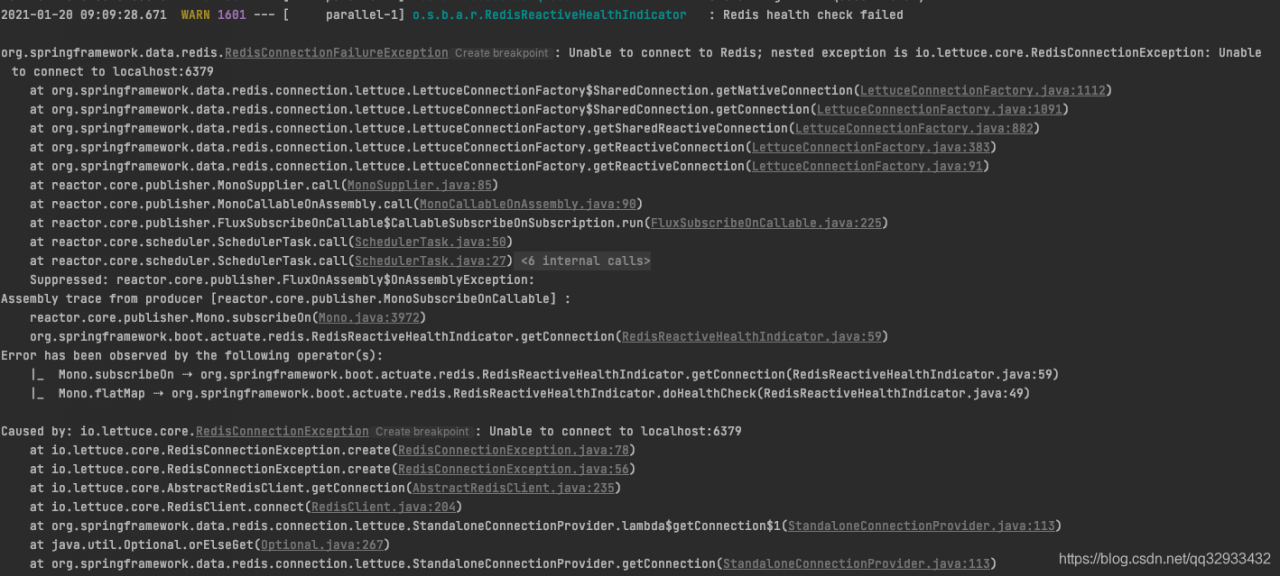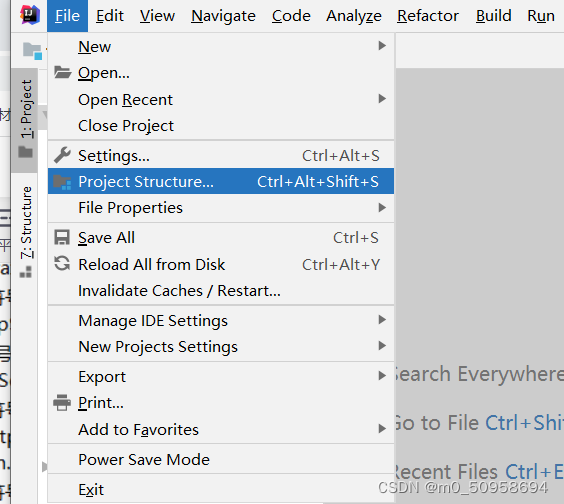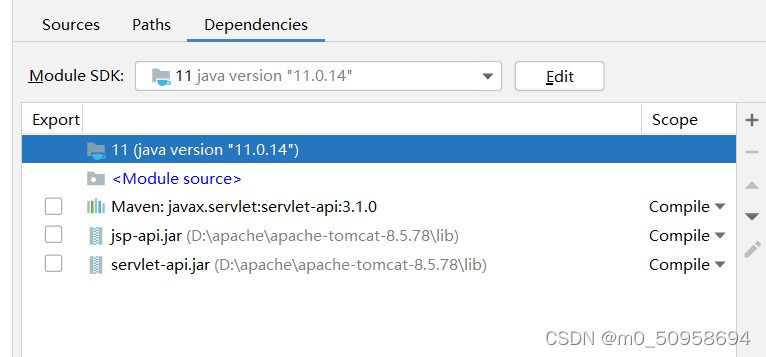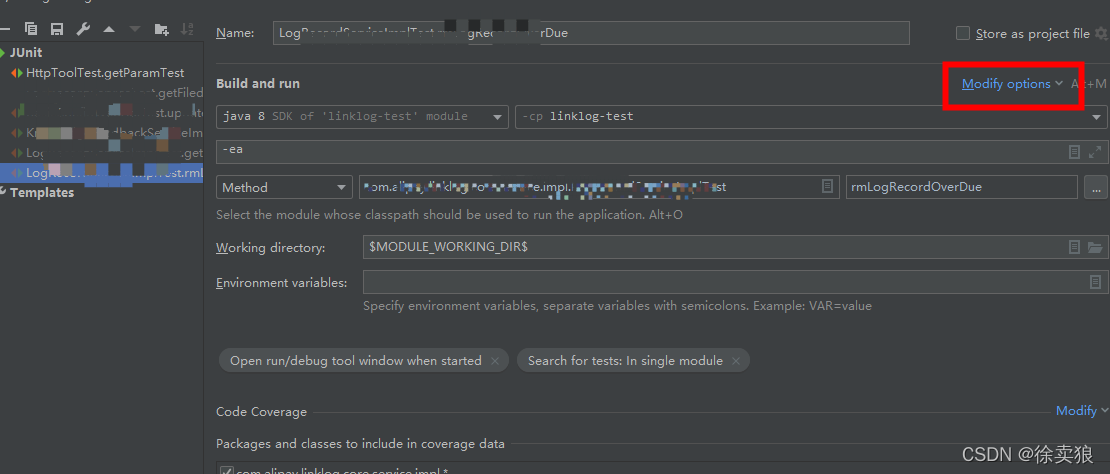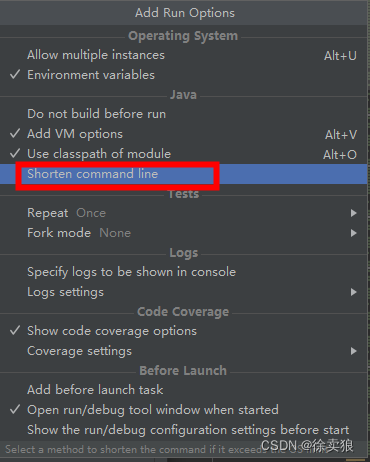The error information is as follows:
2022-04-21 17:43:26.473 ERROR [em-service,,,] 17272 --- [ main] org.springframework.boot.SpringApplication : Application run failed
java.lang.IllegalStateException: Error processing condition on org.springframework.boot.autoconfigure.context.PropertyPlaceholderAutoConfiguration.propertySourcesPlaceholderConfigurer
at org.springframework.boot.autoconfigure.condition.SpringBootCondition.matches(SpringBootCondition.java:64)
at org.springframework.context.annotation.ConditionEvaluator.shouldSkip(ConditionEvaluator.java:108)
at org.springframework.context.annotation.ConfigurationClassBeanDefinitionReader.loadBeanDefinitionsForBeanMethod(ConfigurationClassBeanDefinitionReader.java:180)
at org.springframework.context.annotation.ConfigurationClassBeanDefinitionReader.loadBeanDefinitionsForConfigurationClass(ConfigurationClassBeanDefinitionReader.java:141)
at org.springframework.context.annotation.ConfigurationClassBeanDefinitionReader.loadBeanDefinitions(ConfigurationClassBeanDefinitionReader.java:117)
at org.springframework.context.annotation.ConfigurationClassPostProcessor.processConfigBeanDefinitions(ConfigurationClassPostProcessor.java:328)
at org.springframework.context.annotation.ConfigurationClassPostProcessor.postProcessBeanDefinitionRegistry(ConfigurationClassPostProcessor.java:233)
at org.springframework.context.support.PostProcessorRegistrationDelegate.invokeBeanDefinitionRegistryPostProcessors(PostProcessorRegistrationDelegate.java:271)
at org.springframework.context.support.PostProcessorRegistrationDelegate.invokeBeanFactoryPostProcessors(PostProcessorRegistrationDelegate.java:91)
at org.springframework.context.support.AbstractApplicationContext.invokeBeanFactoryPostProcessors(AbstractApplicationContext.java:694)
at org.springframework.context.support.AbstractApplicationContext.refresh(AbstractApplicationContext.java:532)
at org.springframework.boot.web.servlet.context.ServletWebServerApplicationContext.refresh(ServletWebServerApplicationContext.java:140)
at org.springframework.boot.SpringApplication.refresh(SpringApplication.java:762)
at org.springframework.boot.SpringApplication.refreshContext(SpringApplication.java:398)
at org.springframework.boot.SpringApplication.run(SpringApplication.java:330)
at org.springframework.boot.SpringApplication.run(SpringApplication.java:1258)
at org.springframework.boot.SpringApplication.run(SpringApplication.java:1246)
at com.ey.fssc.em.EmApplication.main(EmApplication.java:30)
Caused by: java.lang.reflect.MalformedParameterizedTypeException: null
at sun.reflect.generics.reflectiveObjects.ParameterizedTypeImpl.validateConstructorArguments(ParameterizedTypeImpl.java:58)
at sun.reflect.generics.reflectiveObjects.ParameterizedTypeImpl.<init>(ParameterizedTypeImpl.java:51)
at sun.reflect.generics.reflectiveObjects.ParameterizedTypeImpl.make(ParameterizedTypeImpl.java:92)
at sun.reflect.generics.factory.CoreReflectionFactory.makeParameterizedType(CoreReflectionFactory.java:105)
at sun.reflect.generics.visitor.Reifier.visitClassTypeSignature(Reifier.java:140)
at sun.reflect.generics.tree.ClassTypeSignature.accept(ClassTypeSignature.java:49)
at sun.reflect.generics.repository.MethodRepository.getReturnType(MethodRepository.java:68)
at java.lang.reflect.Method.getGenericReturnType(Method.java:255)
at org.springframework.core.MethodParameter.getGenericParameterType(MethodParameter.java:419)
at org.springframework.core.SerializableTypeWrapper$MethodParameterTypeProvider.getType(SerializableTypeWrapper.java:317)
at org.springframework.core.SerializableTypeWrapper.forTypeProvider(SerializableTypeWrapper.java:137)
at org.springframework.core.ResolvableType.forType(ResolvableType.java:1384)
at org.springframework.core.ResolvableType.forMethodParameter(ResolvableType.java:1285)
at org.springframework.core.ResolvableType.forMethodParameter(ResolvableType.java:1251)
at org.springframework.core.ResolvableType.forMethodReturnType(ResolvableType.java:1194)
at org.springframework.beans.factory.support.AbstractAutowireCapableBeanFactory.getTypeForFactoryMethod(AbstractAutowireCapableBeanFactory.java:779)
at org.springframework.beans.factory.support.AbstractAutowireCapableBeanFactory.determineTargetType(AbstractAutowireCapableBeanFactory.java:659)
at org.springframework.beans.factory.support.AbstractAutowireCapableBeanFactory.predictBeanType(AbstractAutowireCapableBeanFactory.java:627)
at org.springframework.beans.factory.support.AbstractBeanFactory.isFactoryBean(AbstractBeanFactory.java:1489)
at org.springframework.beans.factory.support.AbstractBeanFactory.isFactoryBean(AbstractBeanFactory.java:1012)
at org.springframework.boot.autoconfigure.condition.BeanTypeRegistry.addBeanTypeForNonAliasDefinition(BeanTypeRegistry.java:180)
at org.springframework.boot.autoconfigure.condition.BeanTypeRegistry.addBeanTypeForNonAliasDefinition(BeanTypeRegistry.java:160)
at org.springframework.boot.autoconfigure.condition.BeanTypeRegistry.addBeanType(BeanTypeRegistry.java:153)
at org.springframework.boot.autoconfigure.condition.BeanTypeRegistry.updateTypesIfNecessary(BeanTypeRegistry.java:215)
at org.springframework.boot.autoconfigure.condition.BeanTypeRegistry.getNamesForType(BeanTypeRegistry.java:115)
at org.springframework.boot.autoconfigure.condition.OnBeanCondition.collectBeanNamesForType(OnBeanCondition.java:265)
at org.springframework.boot.autoconfigure.condition.OnBeanCondition.getBeanNamesForType(OnBeanCondition.java:254)
at org.springframework.boot.autoconfigure.condition.OnBeanCondition.getMatchingBeans(OnBeanCondition.java:196)
at org.springframework.boot.autoconfigure.condition.OnBeanCondition.getMatchOutcome(OnBeanCondition.java:116)
at org.springframework.boot.autoconfigure.condition.SpringBootCondition.matches(SpringBootCondition.java:47)
... 17 common frames omitted
By:
at org.springframework.boot.autoconfigure.condition.SpringBootCondition.matches(SpringBootCondition.java:64)
I thought the PropertyPlaceholderAutoConfiguration class didn’t match automatically. After checking, it’s not the problem.
Then by:
Caused by: java.lang.reflect.MalformedParameterizedTypeException: null
at java.lang.reflect.Method.getGenericReturnType(Method.java:255)
at org.springframework.core.MethodParameter.getGenericParameterType(MethodParameter.java:419)
Find the problem that may be the type mismatch, go to the breakpoint where the error occurs, and debug:

From the figure, you can see that when redis does the configuration, the type returned is GenericObjectPoolConfig<? >, search the code and find where redis configures the data source.

Defining the return type is indeed GenericObjectPoolConfig<? >, however, clicking GenericObjectPoolConfig jumps to:
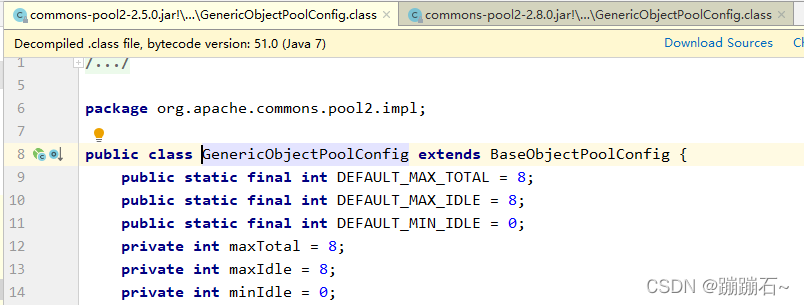
I found that the referenced class, surprisingly GenericObjectPoolConfig after not with a generic, so strange!
Could it be a version problem? So, I checked the project dependency tree and found that I was right in guessing that two different versions of commons-pool jars had been introduced.
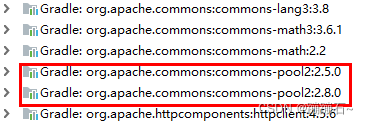
Checking the code, in version 2.8.0, GenericObjectPoolConfig<T> with generic type is used.
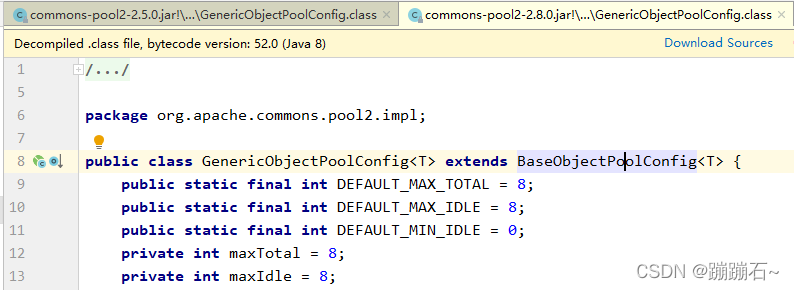
When the problem is found, the jar package of version 2.5.0 is excluded from the POM dependency.
Restart the project, normal.

